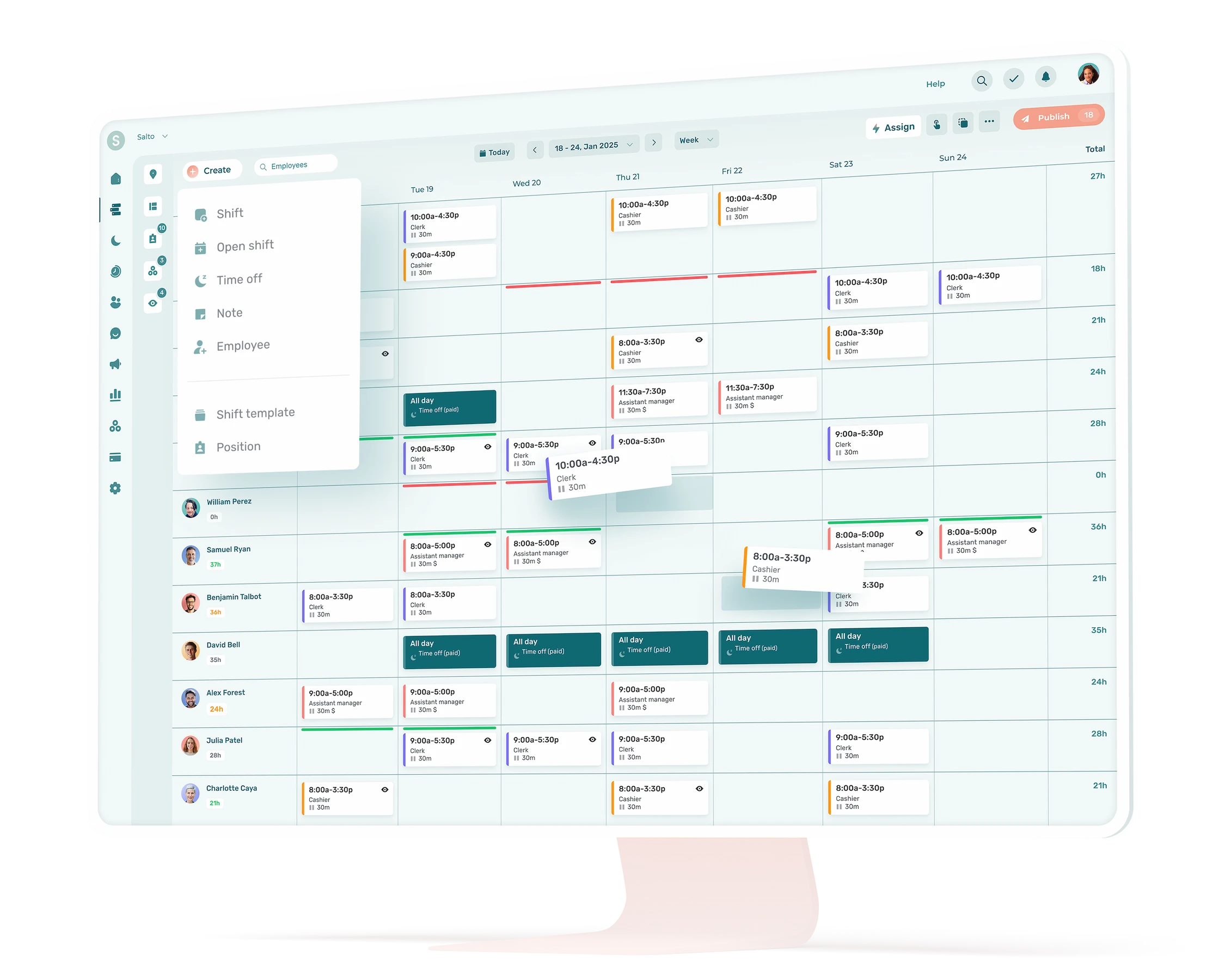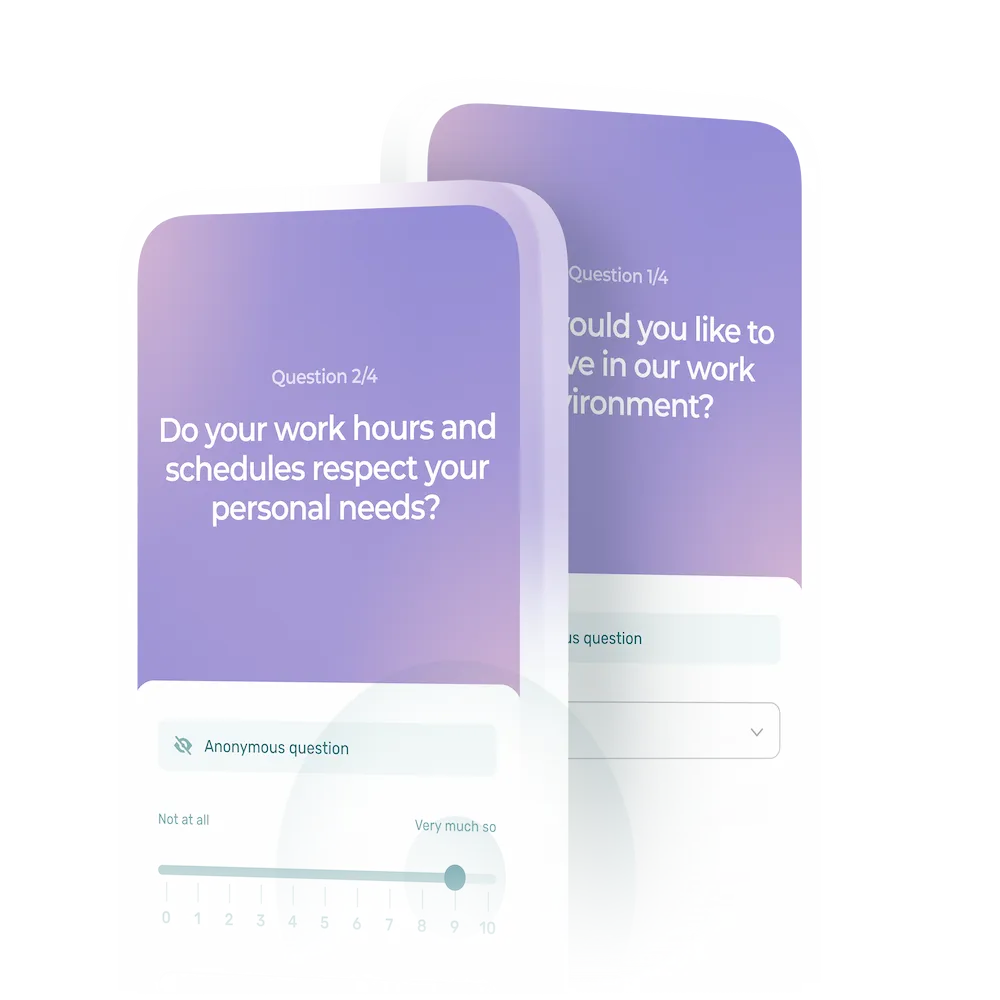Wondering if a pharmacy job candidate is qualified for the role and a good fit for your team? Resumes and certifications only tell you so much. Use these common job interview questions to get the candidate’s full story. Hire the best people for your pharmacy.
Pharmacy Job Interview Questions: Key Takeaways
- Smart hiring is a key component of effective pharmacy management.
- Asking the right pharmacy job interview questions is the best way for a hiring manager to find the right candidate.
- Past experience is great, but there are other important skills that are crucial for succeeding in the fast paced environment of a pharmacy job.
- Also focus on skills, values, and career goals to determine if the candidate is well suited to the pharmacy job.
- There are common job interview questions pharmacy job seekers should also ask to ensure they will make a good fit for the role and pharmacy.
- Hiring managers or those conducting pharmacy job interviews should also be aware of the most common job interview questions asked by candidates and be prepared to answer them.
- Once you’ve hired the right people, be sure to train and treat them right to maintain a productive and loyal team. Pharmacies with low employee turnover are more likely to outperform their competitors.
Importance of Asking the Right Pharmacy Job Interview Questions
Managing a pharmacy efficiently and stress-free is key to long-term profitability. The first hurdle is to hire the right people for your open pharmacy jobs.
Below we share the most common job interview questions pharmacy managers should ask jobseekers. We also include the reasoning for these pharmacy interview questions and examples of solid candidate answers.
Keep in mind that you don’t have to ask ALL of these questions. Nor should you expect all candidates to mimic the sample “ideal” answers provided below. Relevant pharmacy interview questions and answers will vary based on:
- Your pharmacy’s specific needs and values and the specific role.
- The candidate’s previous pharmacy experience and career goals.
9 Most Important Job Interview Questions to Ask Pharmacy Job Candidates (Regardless of Position)
1. Tell me about your past experience working in a pharmacy?
Reason: To gauge the candidate’s prior pharmacy work experience.
Example of a solid answer: “I have X years of experience working in various pharmacy settings, including retail, hospital, and compounding pharmacies. In my roles, I’ve been responsible for dispensing medications, managing inventory, providing patient education, and ensuring regulatory compliance.”
2. Why do you want to work at our pharmacy?
Reason: To gauge the candidate’s interest in your pharmacy and their alignment with its values and goals.
Example of a solid answer: “I am drawn to your pharmacy because of its reputation for exceptional patient care and commitment to community involvement. I admire your focus on personalized service and emphasis on promoting health and wellness within the community. I believe my skills and experience align well with your pharmacy’s values, and I want to contribute to your team and make a positive impact on patients’ lives.”
3. Have you ever had a job where you disagreed with an internal policy or procedure? How did you handle it?
Reason: To gauge the candidate’s understanding of the importance of internal rules and policies and their willingness to adhere to them to ensure smooth operations and timely service.
Example of a solid answer: “At my previous pharmacy, there was a policy regarding inventory management that I initially found cumbersome. Instead of disregarding the policy, I scheduled a meeting with my supervisor to discuss my concerns. I presented alternative approaches that aligned with the policy’s objectives while streamlining our workflow. Through open communication and collaboration, we were able to revise the procedure to better suit our needs while still ensuring compliance with internal guidelines.”
4. How do you ensure punctuality and consistent attendance for your shifts?
Reason: To gauge the candidate’s reliability and attendance to ensure continuity of care and operational efficiency.
Example of a solid answer: “I proactively plan my commute, allowing extra time for unexpected delays. I also openly communicate with my colleagues and supervisors, promptly notifying them if I anticipate any issues that may affect my schedule. In cases of unforeseen emergencies, I take responsibility for finding suitable coverage or arranging for assistance to minimize disruption to pharmacy operations.”
Want to make it easier for employees to swap shifts when needed?
With Agendrix employee scheduling software, managers can decide whether they need to be involved and approve the swap. See how shift swap works >
5. How do you handle scheduling conflicts, such as overlapping shifts or unexpected changes in your availability?
Reason: To gauge the candidate’s ability to handle scheduling conflicts, manage their time effectively and communicate professionally with colleagues to ensure workflows aren’t disrupted and that patients receive timely services.
Example of a solid answer: “When faced with scheduling conflicts, I prioritize clear communication and proactive resolution. If I encounter an overlapping shift or unexpected change in my availability, I immediately notify my supervisor and colleagues as soon as possible. I offer solutions, such as finding alternative coverage or adjusting my schedule to accommodate the conflict. I also take responsibility for ensuring that my commitments are met, whether it involves finding a replacement or rearranging tasks to minimize disruption to pharmacy operations.”
6. How do you approach conflicts or disagreements with coworkers?
Reason: To gauge the candidate’s ability to work within a team and maintain positive relationships to ensure a supportive and productive work environment.
Example of a solid answer: “I believe in addressing conflicts or disagreements with co-workers openly and respectfully. When faced with a disagreement, I strive to understand the other person’s perspective and actively listen to their concerns. I then work towards finding a mutually agreeable solution through constructive communication and compromise. If needed, I am willing to seek guidance from a supervisor or mediator to facilitate resolution while maintaining professionalism and respect for my colleagues.”
To learn how to manage conflict at work, here is a great article : Managing Conflict at Work: 6 Examples and Solutions
7. How do you handle difficult customers or patients?
Reason: To gauge the candidate’s customer service skills to ensure a high level of customer service at all times.
Example of a solid answer: “I approach difficult situations with empathy and patience, actively listening to the patient’s concerns and addressing them calmly and professionally. I aim to de-escalate the situation by offering solutions or alternatives when possible. If necessary, I involve a supervisor or colleague for assistance while maintaining professionalism and respect.”
8. How do you prioritize tasks in a busy pharmacy environment?
Reason: To gauge the candidate’s ability to prioritize and complete critical tasks efficiently, especially during busy periods.
Example of a solid answer: “I prioritize tasks based on urgency and importance. I start by addressing immediate patient needs, such as filling prescriptions for medications required urgently. I then manage inventory, handle administrative tasks, and assist other team members as needed. Throughout the day, I continuously reassess priorities to ensure that critical tasks are completed efficiently without compromising patient care.”
See 9 tips to help your employees stop procrastinating at work
9. As a new employee, what would you do if you were unsure of how to complete a particular task or adhere to an internal policy?
Reason: To gauge the candidate’s willingness to seek guidance and ability to adapt and learn in a new environment to maintain consistent service levels.
Example of a solid answer: “If I was uncertain about a task or internal policy as a new employee, my first step would be to consult the available resources, such as training materials, procedural documents, or employee handbooks. If the information provided does not fully address my question or concern, I would proactively seek clarification from a supervisor, experienced colleague, or designated mentor. I understand the importance of asking questions and seeking guidance to ensure that I perform tasks accurately and adhere to established protocols.”
See how to create an employee handbook
6 Additional Job Interview Questions to Ask Pharmacy Assistants and Pharmacy Technicians
The following pharmacy assistant interview questions and pharmacy technician interview questions can be used to better gauge the candidate’s fit for these specific roles.
1. How do you ensure medication is dispensed accurately?
Reason: To gauge the candidate’s attention to detail to avoid preventable errors that could harm patients.
Example of a solid answer: “I carefully review each prescription, double-checking labels and dosages, and verifying patient information. I also utilize technology, such as pharmacy software systems, to reduce the risk of errors. I’m meticulous in organizing and maintaining a clean workspace to minimize distractions.”
2. How familiar are you with pharmaceutical regulations and compliance?
Reason: To gauge the candidate’s compliance with regulations to ensure the safety and legality of pharmacy operations.
Example of a solid answer: “I have a comprehensive understanding of pharmaceutical regulations, including those set forth by the FDA and DEA, as well as state-specific requirements. I prioritize compliance by ensuring accurate record-keeping, maintaining proper storage conditions for medications, and adhering to dispensing protocols. I also stay updated on changes to regulations through continuous education and training.”
3. How do you stay up-to-date on new medications and pharmaceutical developments?
Reason: To gauge the candidate’s commitment to continuous learning to ensure pharmacy patients receive the best care and advice.
Example of a solid answer: “I stay informed about new medications and developments in the pharmaceutical industry through various channels, including professional journals, online resources, continuing education courses, and attending conferences or seminars. I also actively participate in peer discussions and seek mentorship from experienced colleagues to expand my knowledge base.”
See our tips for drawing up a staff training plan, with concrete examples
4. How do you handle the pressure of working in a fast-paced pharmacy setting?
Reason: To gauge the candidate’s ability to work efficiently under pressure, especially during busy times or emergencies.
Example of a solid answer: “During a particularly busy day in the pharmacy, we experienced a sudden influx of prescriptions due to a nearby clinic’s closure. Despite the high volume and time constraints, I remained calm and focused on prioritizing tasks, such as filling urgent prescriptions first and communicating wait times to patients. I also collaborated closely with my team, delegating responsibilities effectively to ensure smooth operations and timely service.”
5. How do you maintain patient confidentiality?
Reason: To gauge the candidate’s understanding of how to handle this critical aspect of the job.
Example of a solid answer: “I take patient confidentiality very seriously and strictly adhere to HIPAA guidelines. I ensure that patient information is only shared with authorized individuals on a need-to-know basis. I safeguard electronic records with secure passwords and encryption measures, and I handle paper documents with care, storing them in designated, locked areas. Additionally, I communicate with patients discreetly, respecting their privacy at all times.”
6. Have you ever identified a potential drug interaction or error? How did you handle it?
Reason: To gauge the candidate’s vigilance and problem-solving skills to ensure errors are detected and prevented.
Example of a solid answer: “While reviewing a patient’s medication profile, I noticed a potential interaction between a new prescription and a medication they were currently taking. I immediately consulted our pharmacy software and reference materials to confirm the interaction and then contacted the prescribing physician to discuss alternative options. I also informed the patient of the potential risk and provided counseling on how to manage their medications safely.”
Employee Corner: 23 Questions to Ask the Interviewer to Ensure the Pharmacy Is a Good Fit
There are many important questions candidates can ask when applying for a pharmacy job. Hiring managers and those conducting interviews should also carefully review this list of candidate interview questions and be prepared to answer them.
Why Job Seekers Should Ask Questions During Job Interviews:
- It shows you’re interested in the position and the pharmacy.
- It helps you assess your fit within the team – whether you share the same values and work ethics.
- It clarifies role expectations, including work hours and pay.
- It helps you make informed decisions about potential employment.
Candidates can pick and choose from the following pharmacy job interview questions they feel are most relevant to them.
1. How would you describe the pharmacy’s culture and values?
Reason: To understand if the workplace culture aligns with your personal values and work style. Knowing how the pharmacy ensures a positive employee experience, for example, can be a good indication of its culture.
2. What sets this pharmacy apart from its competitors?
Reason: To learn about the pharmacy’s unique selling points, market positioning and competitive edge.
3. How do you onboard new employees?
Reason: To get a sense of how much time and effort the pharmacy puts into onboarding new hires to ensure they are properly welcomed and integrated into the team.
4. What would be my day-to-day responsibilities?
Reason: To better understand daily tasks and expectations to ensure you know what’s required in the role.
5. What are the busiest times or seasons for this pharmacy, and how does the role adapt during these periods?
Reason: To better understand the demands and pressures you might face during peak periods, including the need to work weekends and overtime hours.
6. Are there opportunities for cross-training in other positions?
Reason: To gauge the potential for skill growth and varied experience.
7. Can you describe the dynamics of the team I would be working with?
Reason: To understand team structure and relationships in this fast-paced environment.
8. How do you handle conflicts or disagreements among staff?
Reason: To gauge management’s approach to resolving issues, indicating a supportive or confrontational environment.
9. What’s the management style of the immediate supervisor or manager for this position?
Reason: To assess your compatibility with the leadership approach, including communication with employees.
10. What kind of training programs does the pharmacy offer to new hires?
Reason: To know if the pharmacy has a formal employee training plan. In other words, how much time and effort it invests in employee engagement, growth, and success.
11. Are there opportunities for professional development or growth within the company?
Reason: This can show long-term prospects within the establishment, pointing to career progression.
12. How often are employee performance reviews conducted?
Reason: Performance reviews are indicators of feedback frequency and the potential for promotions or raises.
Download our free Word Performance Review Template
13. What are the typical shifts or working hours for this position?
Reason: Knowing your shift schedule helps set clear expectations about working hours, scheduling shifts, and work-life balance.
14. How is scheduling managed, and how much flexibility is there?
Reason: Scheduling insights can show how adaptable the pharmacy is to personal needs or unforeseen circumstances when scheduling shifts, such as by making it easy for employees to swap shifts when needed.
15. Will I be expected to work on weekends and holidays?
Reason: Understanding these expectations can help in planning personal time and assessing potential work demands.
16. Can you provide details about the benefits package, including health benefits and time-off?
Reason: Benefits can significantly influence job satisfaction and are vital for understanding the full compensation package.
17. Are there any imminent changes planned for the pharmacy , such as renovations or expansions?
Reason: This provides insight into the future direction of the pharmacy and potential shifts in roles or responsibilities.
18. How does the pharmacy handle feedback from customers?
Reason: The approach to feedback indicates the pharmacy emphasis on customer satisfaction and continuous improvement.
20. What strategies or steps does the pharmacy take to stay updated with industry trends and shifts?
Reason: This question highlights the pharmacy commitment to innovation and staying relevant in a competitive market.
21. What do you enjoy most about working here?
Reason: A personal perspective from the interviewer can offer a genuine insight into the pharmacy’s employee experience.
22. What qualities do you believe a successful employee should possess in this role?
Reason: Understanding desired qualities helps you evaluate your fit for the role and the pharmacy expectations.
23. What’s the retention rate for staff, and why do most employees choose to stay?
Reason: High retention rates often indicate a positive work environment and employee satisfaction. Some pharmacies use high fives and employee recognition programs to further boost employee retention.











